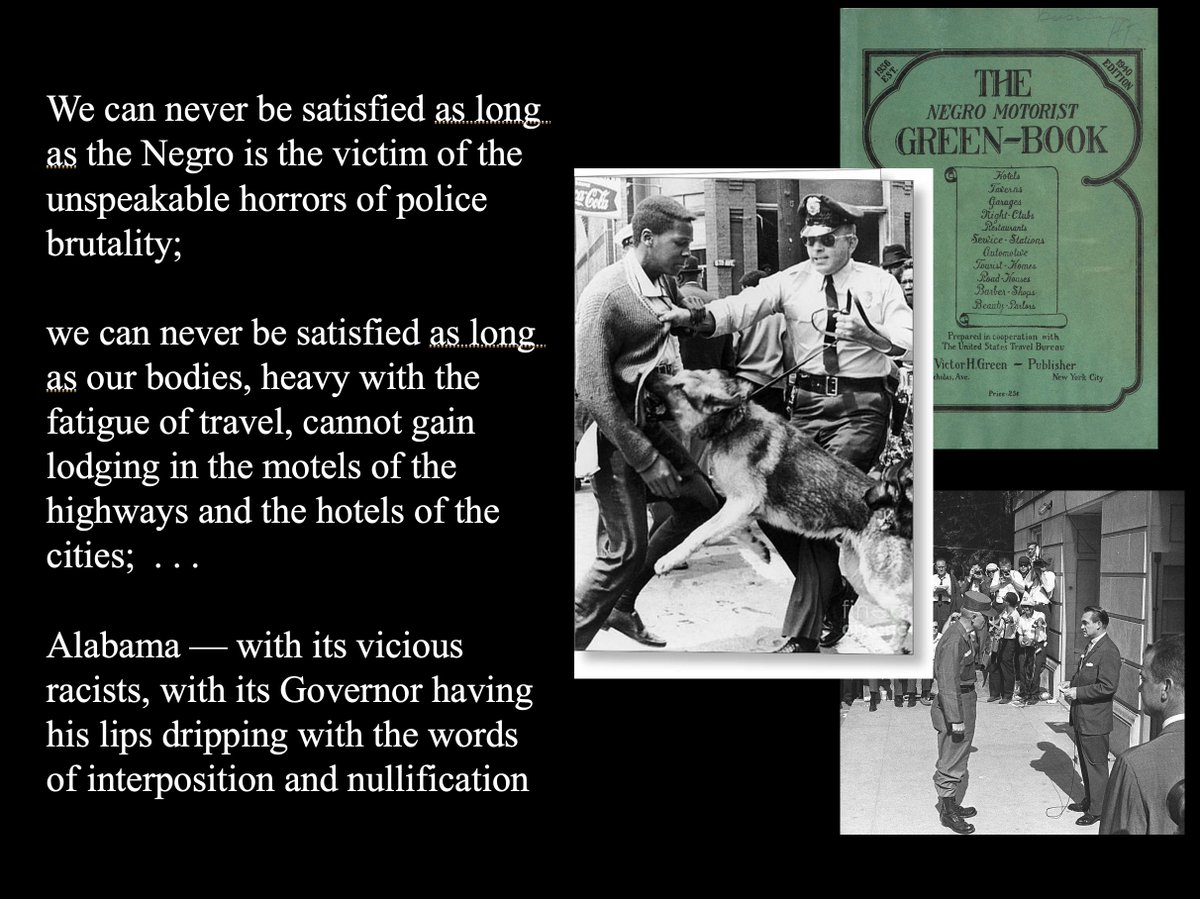I suspect that the vast majority of the answers to the original question will fall foul of the tendency to project ideal social arrangements that reflect our own style of social understanding and engagement, and that this will lead them to talk past one another.
Consider the perspective of someone far away from you on in the neurological map, who doesn’t overlap with your socially calibrated genetic resources for social intelligence: the social heaven of an autist introvert may be the social hell of a bipolar extrovert, and vice versa.
I’ve had many good conversations about this with people in different parts of the map who overlap with me in different ways (h/t
@tjohnlinward, @dynamic_proxy, @maradydd, @mojozozoe, @UnclePhobic) whose personal heavens I would like to visit, but maybe not live in full time.
We get to see glimpses of these heavens not merely in the past, but in the present, and abstract their geometries, both in spatial/architectural terms (
https://t.co/aTcRgtJOVJ) and in temporal/dynamic terms (). The physical/computational platforms around us configure our agency.
https://t.co/AoX2enwl36
The strand of communism I have the most problem with, which has the most violent reaction against l/acc, is the puerile insurrectionism I tend to call ‘Paris commune alt-history fanfic’. I don’t mean to demean either alt-history or fanfic here, but rather the imaginary commune.
There are many people out there whose intuitive orientation toward utopia (expressed as ‘omnia sunt communia’ and articulated by the microeconomics of LTV) looks to me like nothing so much as a washing up rota stomping on a human face for all eternity.
These insurrectionists are the first to castigate those who feel an aversion to such communal living arrangements (economics in the original sense of the management of the household) as themselves puerile and irresponsible, unwilling to collectively commit to reproductive labour.
They often simply cannot see that the ways they like to be embedded in the social environment that enables mutual reproduction (the macroeconomics of LTV and its competitors) are not well suited to those with different cognitive make ups. For the latter live through abstractions.
The strand of communist thought that emerges from Sohn-Rethel always threatens to collapse back into an ahistorical and eschatological critique of the evils of money, when the latter provides the freedom-of-last-resort for those who aren’t embedded in less liquid support systems.
I’m not going to say there’s nothing to the notion of ‘real abstraction’, but the unthinking valorisation of the concrete that I have critiqued in other contexts (
https://t.co/aa2rcbOc40) renders it not merely useless but actively counterproductive.
If you can’t talk about the concrete abstractions that articulate the whole industrial platform of modern human life from agriculture and waste disposal to finance and telecommunications, then you’ve got no choice but to stick to fanfic. At best, this becomes sabotage fanfic.
I can see why it’s attractive to rhapsodise about pulling it all down and squatting the ruins, salvaging what little is left from the industrial remnants of the capitalist age, but I and my friends *need* industrial pharmaceuticals, and we’ll fight for them if it comes to it.
If it must be communism, at least give me acid communism or FALGSC over the hauntological aesthetics come haunted ideology of salvagepunk communes. Give me infopunk spectres over the last dying embers of the promise of modernity. Give me a fucking future, not a squalid past.
Solarpunk, fine! Atompunk even. Hell the NRx hellscape of nanofacture steampunk Pax Victoriana in Stephenson’s Diamond Age is better than this romanticisation of ruin and regret. The cynical view of endless domination/resistance in The Expanse and Altered Carbon is preferable.
I think there’s plenty of problems with what I’ve seen of the discussions regarding ‘patchwork’ coming out of the Fisher/Land nexus, and I’m pretty skeptical of ‘left NRx’ as a viable configuration, but at least the idea is to stitch us back together in some way that fits.
I’ve equally got theoretical bones to pick with the post-left anarcho-transhumanism of C4SS, but as recent exchanges with
@rechelon have shown, these can be extremely productive, for me if no one else. But I can’t get into insurrectionist cosplay, no matter how much I like ARGs.
We simply don’t have the time, will, resources, or *opportunities* to burn it all down to the ground and start again, and anything that even suggests so in its aesthetic framing is squandering what opportunities we have to steer secular trajectories towards better futures.
This is my basic view of left-accelerationism: it’s a theory of strategic opportunity in the age of auto catalytic and mutually reinforcing global trends. The choices we have are: steer, slide, or crash into the collapsing potentials of the 21st century. Prometheanism is best.
If someone turns up at your door with a hammer & sickle pin, torn jeans, and asking if you’ve heard the good news of value form theory, my advice is to tell them that you’ve got better things to do, like hustling to keep up with the post-career economy we’re still sliding into.
So, that’s my thoughts on the speculative fictions that orient us towards the (hopefully post-capitalist) future, and my critique of the worst. What positive things do I have to say about the original question as I reformulated it?
I’ve got two thoughts, that are largely imagistic, but that’s what we’re after here: models or analogies that orient our thinking about how to steer/construct. I’ll number them, as I’ve taken to doing:
1. Urbanisation. There are various processes of modernisation throughout human history, understood as the generation of new ranges of personal freedom not through isolation but through economic entanglement: complicity in mutual reproduction.
Cities remain the best historical model of the sort of overlapping coexistence I’m advising in the way I’ve framed the question. I’m deeply influenced by Jane Jacobs’s work here (The Nature of Economies & TDaLoGAC), even if I have certain qualms about her normative naturalism.
Somewhere in my head she’s having a very interesting conversation with George’s Bataille, Guy Debord, D&G, and
@InigoWilkins about the way time and energy bootstrap themselves into ever more excessive tangles of beautiful inefficiency, with cities as the core case study.
It's possible to reconceive processes of modernisation in a way that loosens the connections to modernity/modernism in the history of Europe from the Renaissance to post-colonial neoliberal capitalism: Addis Ababa, Tenochtitlan, Beijing as much as Rome, London, and New York.
We must avoid the anachronistic/utopian temptation to project the politico-economic configuration that Marx called 'capital' into times and places where it does not belong, where wage labour and endogenous technological evolution were not yet integrated and ascendent.
This is about more than the commodity form and its monetary synthesis - more than markets for land, labour, and currency - its about the mode of investment that ties these things together into an autocatalytic process of wealth accumulation through the modulation of industry.
This is Marx's real insight about what's unique to the birth of capitalism, and rather than watering it down so it can be indiscriminately smeared across time/space, we would do better to elaborate and particularise it, as Veblen, Neurath, and Polanyi do in different ways.
If you're serious about political economy, you've got to get outside the echo chamber of Marx philology now and then, no matter how much intrinsically worthwhile work there may be in there (e.g., the Frankfurt school, Cohen, Althusser, Postone, etc.). I'll return to this thought.
For now I'm supposed to be talking about cities, and the modernisation dynamics that they enable/are enabled by. Mighty empires have crystallised around the economies of cities (e.g., Rome), but cities have equally been created by the politics of mighty empires (e.g., Beijing).




























